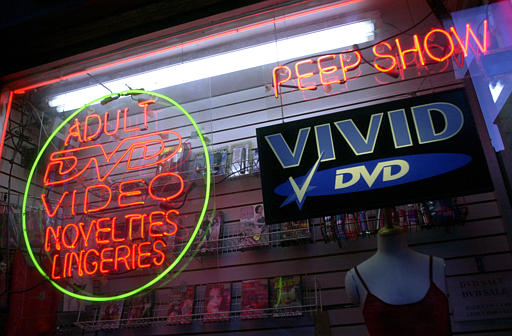In FW/PBS, Inc. v. City of Dallas, 493 U.S. 215 (1990), six members of the Supreme Court agreed that a Dallas licensing scheme regulating sexually-oriented businesses imposed a prior restraint that lacked adequate procedural safeguards as required by the decision in Freedman v. Maryland (1965). The scheme was thus facially unconstitutional.
Court said licensing of sexually-oriented business required safeguards against prior restraint
Delivering the majority opinion, Justice Sandra Day O’Connor observed that licensing schemes like Dallas’s require two of Freedman’s three safeguards:
- (1) any restraint prior to judicial review may be imposed only for a specified brief period during which the status quo must be maintained, and
- (2) expeditious judicial review of that decision must be available.
Justice William J. Brennan Jr., joined by two of his colleagues, concurred in the judgment, but wrote separately because he would have required Freedman’s third safeguard as well—that the city bear the burden of going to court on the license application denial, and that it bear the burden of proof once in court. Justice Byron R. White, joined by Chief Justice William H. Rehnquist, and Justice Antonin Scalia each wrote dissents, arguing that Freedman’s procedural safeguards were not applicable to Dallas’s scheme.
Licensing scheme’s lack of deadlines violated First Amendment
FW/PBS followed a series of cases examining the two “evils that will not be tolerated” in prior restraint schemes: (1) “unbridled discretion in the hands of a government official” and (2) unreasonable delay. FW/PBS’s ordinance required the police chief to approve issuance of the license within thirty days of “receipt of the application,” but it also required certain inspections (such as building and health) before the license could be issued. Because no time limits were set for completing these inspections and because no license could be issued without inspection approvals, the deadline was illusory.
O’Connor said licensing scheme was not a censorship system
Justice O’Connor did not require the third Freedman safeguard. She held that Dallas’s licensing scheme did not “present the grave ‘dangers of a censorship system’ ”for two reasons. First, under Dallas’s ordinance the city could not exercise discretion “by passing judgment on the content of any protected speech.” Instead, the city reviewed the applicant’s general qualifications, “a ministerial action that is not presumptively invalid.” Second, unlike movie distributors, Dallas license applicants “had more at stake” and thus had “every incentive …to pursue the license denial through court.”
Scalia thought sexually-oriented businesses could be engaged in marketing obscenity
Scalia, in his dissent, urged another means of addressing legislation affecting sexually-oriented businesses. The means, he stated, “consists of recognizing that a business devoted to the sale of highly explicit sexual material can be found to be engaged in the marketing of obscenity, even though each book or film it sells might, in isolation, be considered merely pornographic and not obscene.” The plurality, however, implicitly rejected this proposition. It observed that “[t]he core policy underlying Freedman is that the license for a First Amendment–protected business must be issued within a reasonable period of time” (emphasis added).
‘Prompt judicial review’ requirement raised questions in lower courts
One question that divided circuit courts after FW/PBS arose from Justice O’Connor’s statement that “there must be the possibility of prompt judicial review in the event that [a] license is erroneously denied.” Some courts believed that this statement required a prompt judicial determination, not mere access to judicial review; others concluded that “prompt judicial review” meant only prompt access to the courts. At least in Colorado, this question was resolved in City of Littleton v. Z.J. Gifts D-4, L.L.C. (2004), in which the Supreme Court held that Colorado’s “ordinary court procedural rules and practices . . . provide reviewing courts with judicial tools sufficient to avoid delay-related First Amendment harm.”
This article was originally published in 2009. Cary Wiggins is a civil rights attorney with his practice in Atlanta. He has served as lead counsel in numerous cases involving First Amendment, Fourth Amendment, and Fourteenth Amendment claims. He frequently represents individuals who are asserting false arrest, malicious prosecution, excessive force, and public accommodation claims, as well as businesses seeking constitutional protections.

